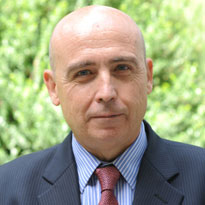Healthcare Initiative
Advancing healthcare management
Healthcare systems, organizations and companies have a profound effect on the wellbeing of individuals and societies alike. The Healthcare Initiative seeks to have a transformational impact on the healthcare industry through the education of leaders, the development of applied research and by creating a forum for industry stakeholders and the IESE community.
A hallmark of the initiative is its focus on actionable learning. It aims to advance evidence-based healthcare management science and practice across all segments of the global health sector. Key focus areas of the initiative are:
- Management of health systems and delivery organizations
- Health economics and policy
- Management of pharmaceutical and biotechnology companies
The Healthcare Initiative programs bring together industry stakeholders and leaders, offering educational opportunities for the advancement of healthcare management.
Moreover, IESE’s faculty is researching some of the most pressing issues in the healthcare industry.
Programs and events.
The Healthcare Initiative programs and conferences that bring together industry stakeholders and leaders, offering educational opportunities for the advancement of healthcare management.
Research.
Research activities are currently organized in five main areas by joining forces with partners from different fields (public and non-profit institutions, pharmaceutical, medical devices and other health-related industries, academic institutions, etc.):
- Management of innovative care processes, including the integration of care processes. Better understanding of the care process, management systems and improvement opportunities to build on knowledge and experience in operation management and related areas.
- Innovating management, innovation culture. Innovation in healthcare includes products (new drugs and devices), care processes and the impact innovations have on the way care is provided. Healthcare providers, particularly tertiary-care hospitals, are at the forefront of innovation. A better understanding of innovative cultures will provide ideas on how to better support innovation and research and how to manage the uptake of innovations and new technology in and out of the hospital.
- Innovating health systems and policy in Spain and Europe. Innovations in care processes within health systems: integration across organizations, quality of care continuity, financial arrangements, patient participation, skills mix, transfer of knowledge into practice and lessons from cross-border care (the interface between different systems).
- Innovation in medical technologies and treatments. The paradigm change in new forms of innovation, open innovation and public-private partnerships is revolutionizing the sector in the traditional medical-related industry and in newer ones such as biotech and nanotechnology.
- Innovation for global health. Innovations in products and processes to increase access to quality healthcare in global health; building on work with the Brookings Institution, the Bill and Melinda Gates Foundation, the Results for Development Institute, the World Bank and the OECD. Projects and planned collaborations include: GIZ and South American and African public health schools; CRESIB and ISGlobal in Barcelona; and a variety of topics: innovative financing for global health, universal access to healthcare, the health insurance challenge, social entrepreneurship, innovative products, processes and partnerships for better access to better quality care with a particular focus on developing countries (with the possibility of interactive learning).
The recently started EU-FP7 project SDH-Net aims to provide a better understanding of the innovation and research process in middle- and low-income countries related to the social determinants of health (SDH) and, consequently, to develop capacity-building tools. It is carried out in collaboration with the German Development Agency GIZ, the Mexican National Public Health Institute, the Universidad Nacional de Colombia, the Tanzanian Ifakara Health Institute, the University of Nairobi and the Council on Health Research for Development (COHRED), among others.













